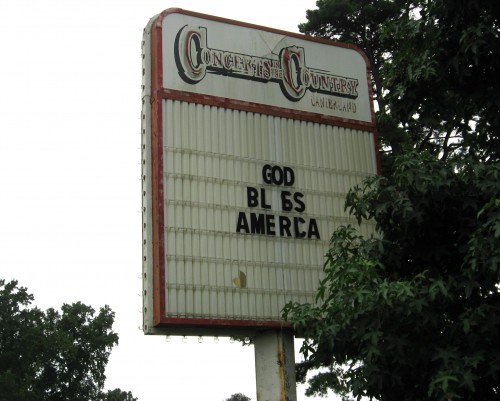
I printed my manuscript this weekend. It took an hour to get all the Google Drive files together and get it properly formatted, and by the time the printer finally stopped whirring and enjoyed a well-earned rest, I had a block of paper so thick it surprised even me, and I’m the one who spent the past six years writing it.
With the house to myself for a couple days, I’m trying to get the whole thing read out loud. I spent six hours yesterday entertaining the mice in the crawl space with my teenage melodrama, and it’s surprising what I missed, considering how many times I’ve gone over this damn thing. I’m definitely not a vomit drafter. I can’t stand typos and often consult a dictionary before committing words to the narrative, so I didn’t think I’d have so many doubles and missing articles. I’m happy to say that for the most part, everything reads as smoothly out loud as it did in my head. I like to think of myself as someone who writes mainly by rhythm. I have to hear the music before I consider it right, and that apparently takes for-freaking-ever.
Hearing my story out loud in my own thin voice has helped me understand exactly what it is I’ve accomplished. When I went to Office Max to find a manuscript box–which apparently they don’t make anymore–I felt like a fraud trying to explain to the helpful sales associate what I wanted, that sometimes you print out your novel manuscript and need a convenient way to store almost an entire ream of paper. Because obviously that implies I printed out a novel manuscript, and what business would I have doing that?
But I’m enjoying the process. There are parts I’ll probably never be able to sand out, but there are also parts that legitimately make my heart race. I love the suspense and the way the characters keep getting themselves into deeper shit. I love how much they want what’s right in front of them, if only they could get over themselves and take it. And even though I know how it all works out, I still want everything to be perfect for my fragile little babies, and I’m happy to see I didn’t let that happen. Part of the delay in getting this thing done was going from a happy ending in the first draft to one that’s bittersweet. Because I don’t know how you can write about false imprisonment and emotional neglect and expect everything to be fine. Even when you actually do get justice, things are rarely ever fine.
#
My parents officially disowned me on Friday. That was a great start to my weekend. They’ve spent years toying with the idea, going back and forth on whether or not my very presence is detrimental to their spiritual health, so in some ways it’s good they finally made a decision. I haven’t seen them in eight months, so it’s not like anything has actually changed. It’s just final now. Before, the ball was sitting in their court. I told them that if they wanted a daughter, they need to act like it and actually talk to me. Friday they told me that won’t happen until I leave my husband and start believing in God again. (Over text message, no less.) So, there you go.
It’s been quite the weekend.
I decided against canceling Friday’s dinner plans and had my friend over anyway. We had a lovely time. She brought a vegan cheesecake and we drank wine and debated politics and watched a movie about a teenage girl who gets possessed. To my parents, this makes me evil. To me, it means I’m undeniably alive.
My dad was actually one of the first people to read the first draft. It’s funny to me that I wrote it over the summer/fall I lost my faith. You can witness the transition on this blog, which is one of the reasons I’ve kept it up. There’s a post where I’m clearly going through issues. (I cry over watching a squirrel’s nest fall out of a tree during a rainstorm, described as “bad stuff raining down from the heavens, indiscriminately dropping on unsuspecting targets.”) This was written during the worst year of my life, when I thought my husband was being misled by Satan because he didn’t believe anymore, and I was struggling with the possibility that maybe he was right and we’re all here by chance. You can see it in how I tried to tie the experience back to writing, which is basically an exercise in finding meaning in chaos:
I have no idea what the next step is. Maybe there is no next step. Maybe another nice squirrel family will take them in. All I know is, somehow, Squirrel Metaphor will be a reoccurring one. It will climb back into my head from reality and then out onto the page, because if there’s one thing I’ve learned about writing, it’s that sometimes, things happen for a reason. And no one else can tell you what that reason is: you have to make it yourself. You have to make it worthwhile, because otherwise, it’s just a bunch of baby squirrel death.
Then a couple weeks later I recount a near-death experience on the Ocoee River in Tennessee and fight back against that thought, that self-ascribed reason to exist. It’s hard to see it because again, I’m comparing it to writing fiction, but when I wrote these words, I had in mind my husband’s objections to my reasoning that God has to exist because if he doesn’t, then what’s the fucking point of anything?
Some people say it’s merely human nature to look for patterns, to find meaning in the chaos. Maybe. But chaos isn’t a very nice place to be, and I would much rather spend my time looking for answers than accepting that we are all just corks, bobbing aimlessly down a river. I refuse to accept that.
At this point I had yet to open a single science book. It took a long time to learn everything my religious upbringing denied me, because if there’s one antidote to magical thinking, it’s critical thinking. The first image in the first draft of my manuscript is the main character finding a box that contains the answer she spends the next 50k words searching for, but she’s too afraid to open it. I was 100% in cult-mode when I wrote that, which is funny because that’s how cults work. They make you afraid to consider any dissenting evidence. They make you afraid to open the box of truth by filling you with lies.
Just two days ago, my mother told me to come back before it’s too late. Meaning, before I die in Armageddon, which is what they believe will happen to everyone who’s not a Jehovah’s Witness. I hate that she lives with that fear. But at this point there’s nothing I can do.
What would my father think if he read my manuscript now? Hopefully, someday he can walk into a bookstore and do just that, though I doubt he ever will. But if he did, I hope he would see it’s not about a girl bucking authority and doing what she wants because it’s more fun than following the rules. I hope he sees a girl whose life was ruined by lies, who spends a great deal of effort searching for the truth, and even though the truth hurts sometimes, it’s one of the most precious things you can find.



























